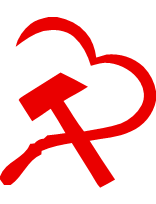

Devil’s advocate for a sec… if elections can be “bought” because people are so apathetic or lazy that they need literally millions of dollars worth of advertising to convince them to vote, then maybe electoral democracy can’t work?
Dig in just a bit deeper here: These are people who live in New York, a state notorious for being unfailingly Democrat and also unfailingly conservative in its governance. The fact that some people have become disillusioned with elections that, their whole lives, have probably demonstrated very little change, is understandable and not a symptom of the average person somehow being simply inadequate for very basic tasks.
Maybe Mao was right about a cultural revolution
Mao was a radical democrat (lowercase d) and both the successes and failures of the Cultural Revolution are connected to that. Though there was direction from the top, ultimately the events that I assume you are referring to, like the Four Olds Campaign, were carried out on a grassroots basis by young activists, sometimes constructively and sometimes not. It was in many respects a battle of the progressive elements of society against the reactionary elements, one that the reactionary elements ultimately won by holding out until Their Guy took over the country, since the progressive or would-be-progressive forces were too disorganized in themselves to succeed at anything but being a force of chaos that gave reactionaries a solid causus belli for police crackdown.
At scale this was not at all Mao dictating his socialism to the common people and then beating it into them when they resisted (though some of his followers certainly did, and this mostly failed).
The Cultural Revolution is a very fraught topic, but you are doing Mao a disservice by essentially accusing him of “commandism”, an error that he was very much against.
Commandism is wrong in any type of work, because in overstepping the level of political consciousness of the masses and violating the principle of voluntary mass action it reflects the disease of impetuosity. Our comrades must not assume that everything they themselves understand is understood by the masses. Whether the masses understand it and are ready to take action can be discovered only by going into their midst and making investigations. If we do so, we can avoid commandism. Tailism in any type of work is also wrong, because in falling below the level of political consciousness of the masses and violating the principle of leading the masses forward it reflects the disease of dilatoriness. Our comrades must not assume that the masses have no understanding of what they themselves do not yet understand. It often happens that the masses outstrip us and are eager to advance a step when our comrades are still tailing behind certain backward elements, for instead of acting as leaders of the masses such comrades reflect the views of these backward elements and, moreover, mistake them for those of the broad masses. In a word, every comrade must be brought to understand that the supreme test of the words and deeds of a Communist is whether they conform with the highest interests and enjoy the support of the overwhelming majority of the people. Every comrade must be helped to understand that as long as we rely on the people, believe firmly in the inexhaustible creative power of the masses and hence trust and identify ourselves with them, no enemy can crush us while we can crush every enemy and overcome every difficulty.
https://www.marxists.org/reference/archive/mao/selected-works/volume-3/mswv3_25.htm












I say with more empathy than you can know that your perspective is entirely cope for being socially maladapted. You don’t know how intelligent most people are. You don’t know how much empathy they actually have. You’re just like a channer writing monologues online about how “normies” don’t have internal monologues [citation needed!] and therefore are “NPCs”. Society has hurt you and you’ve grown estranged from it, and in bitter loneliness you tell yourself stories of their inferiority (which, not coincidentally, implies your superiority) in order to sooth yourself. But you aren’t superior and they are not the wretched creatures you have portrayed them as in their absence.
It seems to me unlikely that you will be able to outgrow this mindset without confronting it directly, which is why I am broaching the subject so directly. My access to a device to write these things is irregular, but I strongly encourage you to a) try talking to more people and b) actually read Mao.
https://afe.easia.columbia.edu/special/china_1900_mao_speeches.htm#foolish